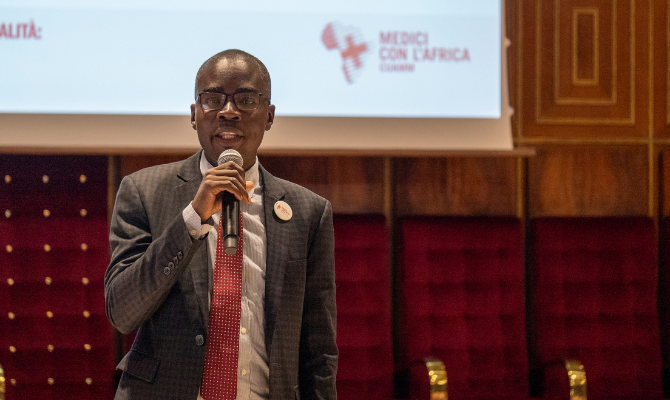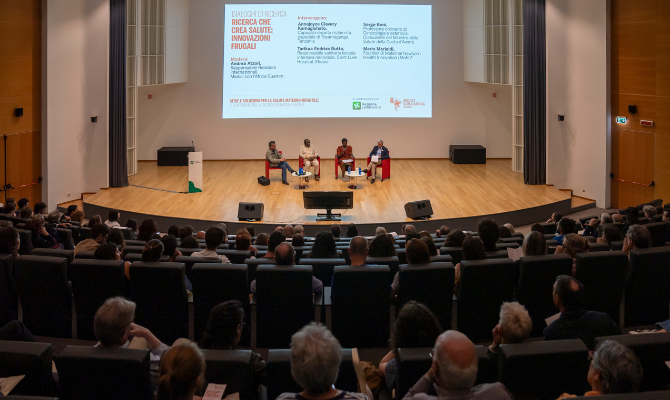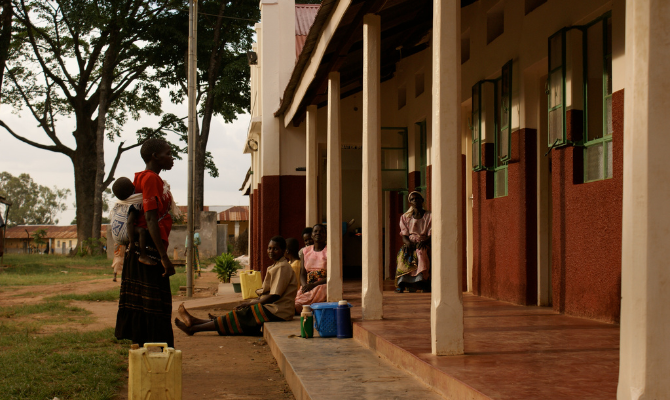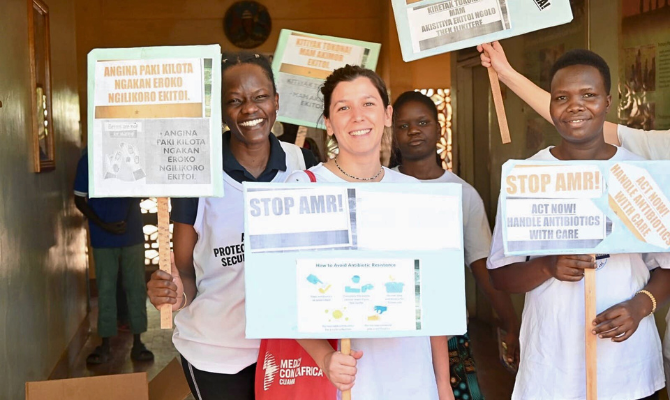Building lasting change from the ground up. One step at a time by working every day alongside the people most in need, without ever losing sight of the importance of dialogue with institutions. This is what Jerry Ictho, doctor and technical advisor at CUAMM Uganda, has learned to do over nearly ten years of collaboration with the Organization.
This year, in April, Jerry came to Italy as lecturer at the training course Implementation Research: three days dedicated to deepening the themes of operational research in the Global South. That’s Jerry’s expertise and his main job at CUAMM. Before joining Doctors with Africa CUAMM, he spent six years working in the national health system, deployed in the rural district of Zombo, in West Nile. Then he met CUAMM and that was an encounter which he describes as a calling: “It’s a mission that deeply touched my heart.”
The opportunity to combine clinical practice, research, and prevention into one strategy for building change convinced him to join the team.
“Our work is always moved by evidence, context analysis, and research,” he explains. “It is an integrated and differentiated approach that allows us to connect the dots and achieve quality results, even where others might get stuck. For us,” he adds, “this is the key tool to bring about structural improvement. It allows us to merge consistent and effective fieldwork with scientific research, in ongoing collaboration with universities. That’s what makes the difference.”
Not only with universities: working side by side with the local health system is also essential to improve the quality of the work being done.
“We’re not here just to provide treatment, but to build something that will last.” Working in remote areas is an essential part of this vision. Yet doctors often prefer to stay in cities, where the standard of living is higher. But with CUAMM, you’re encouraged to get to the hardest-to-reach areas. We work from the ground up: we want to be where the need is greatest.”
A choice that entails complex challenges. Among them, the recent Mpox outbreak, and malaria, which remains widespread. Also, increased rates of malnutrition resulting from the climate crisis, which brings alternating periods of extreme drought and severe flooding — threating agriculture.
And while prevention is key to success in healthcare, putting it into practice ain’t always easy. In refugee camps for example ensuring preventing measure to tackle epidemic outbreak remains a challenge and Uganda is currently the country hosting the largest refugee population in Africa and the 6th largest in the world.
“The doors of our country are open to those in need: in recent times we’ve welcomed many South Sudanese, Congolese… but their living conditions are dare and funds are too often unsufficient”.
The situation has recently been compounded by the aid cut of USAID, which severely affected humanitarian projects in Uganda.
“We had to stop activities, let people go, suspend programs. It was a shock. Politically, the issue is more complex — some believe that this new situation may push the system to reorganize, to make better use of available resources and reduce corruption. But we were absolutely not prepared to do that. The Minister of Health presented the revised budget in light of these cuts, and the numbers are staggering. The impact has been, and continues to be, devastating.”
Despite the difficulties, Jerry doesn’t lose hope.
“With CUAMM, we walk together and find solutions together. In times of difficulty, I remind myself: if you have the chance to make a difference for your country, why wouldn’t you?”





